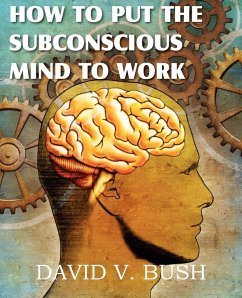
Timidity - How to Overcome It
Versandkostenfrei!
Versandfertig in 1-2 Wochen
14,99 €
inkl. MwSt.

PAYBACK Punkte
7 °P sammeln!
What are we striving for in this life if not to attain happiness, which each one of us views from a different aspect? There are certain rules that must be observed in order to reach this enviable state. There are also certain dangers that must be avoided. In fact, we must overcome and eradicate our faults as energetically as we would rid ourselves of an enemy. Among these faults, says Yoritomo, is "Timidity," which many narrow-minded men wrongly treat so indulgently that they come to view as commendable a quality which they should most vigorously condemn. Yoritomo-Tashi is superior to many thi...
What are we striving for in this life if not to attain happiness, which each one of us views from a different aspect? There are certain rules that must be observed in order to reach this enviable state. There are also certain dangers that must be avoided. In fact, we must overcome and eradicate our faults as energetically as we would rid ourselves of an enemy. Among these faults, says Yoritomo, is "Timidity," which many narrow-minded men wrongly treat so indulgently that they come to view as commendable a quality which they should most vigorously condemn. Yoritomo-Tashi is superior to many thinkers in the fact that he is not satisfied with merely pointing out an evil; he analyzes its causes, and, in regard to mental defects, he indicates the cure.













